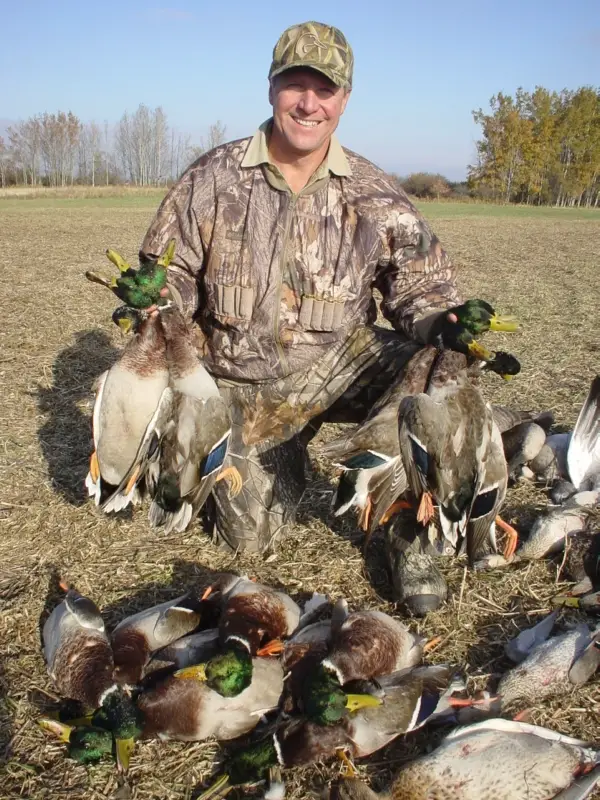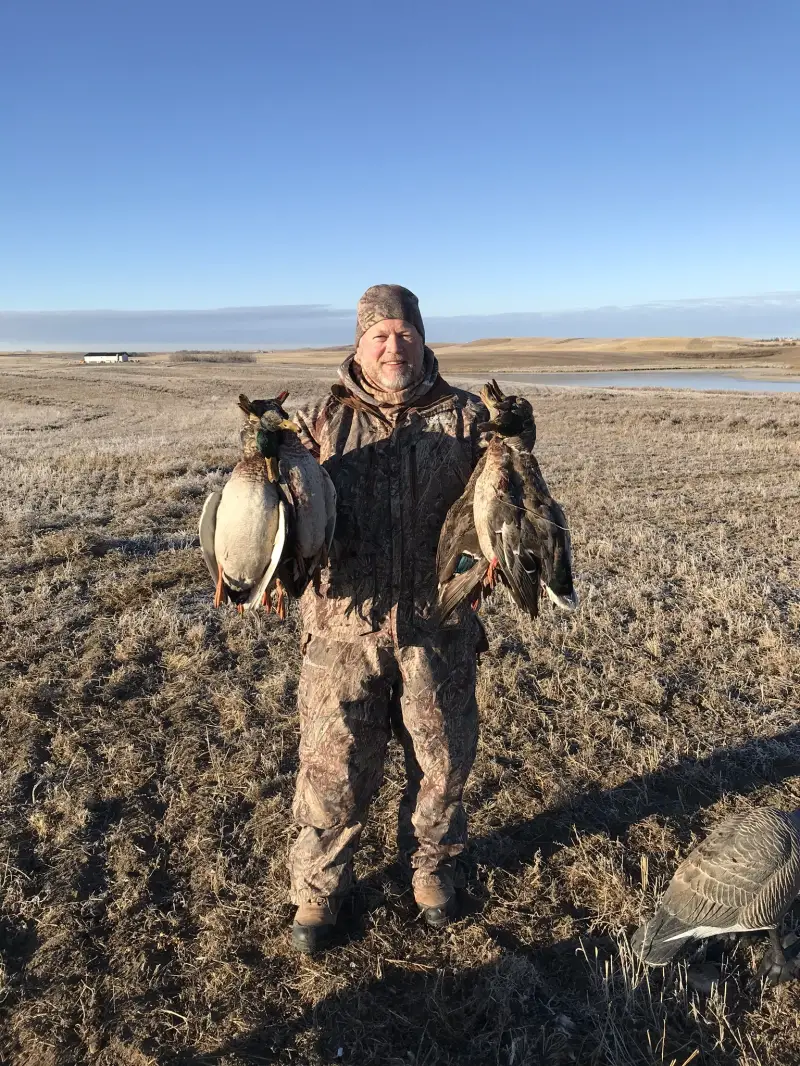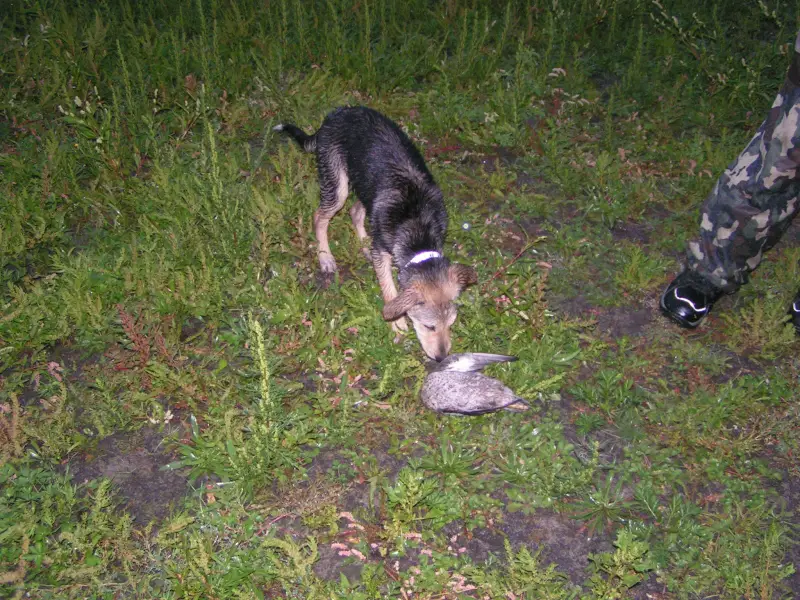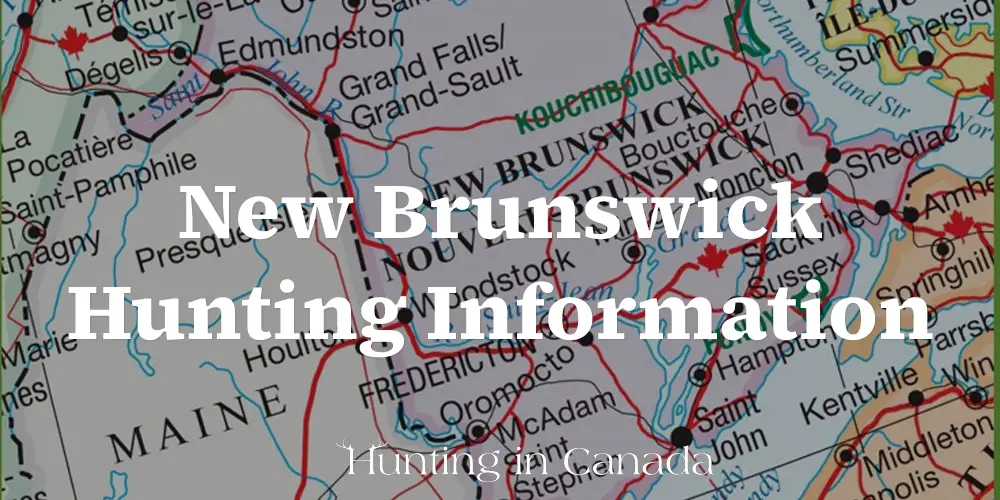Hunting Licences
In order to purchase a licence, you will need a New Brunswick Outdoors Card number. Outdoors Card numbers and licences are available from authorized vendors, Natural Resources and Energy Development site, and all Service New Brunswick centres.
Hunter Education Requirements:
1. A resident & non-resident Hunter who was born on or after January 1, 1981, and any first-time hunter must show proof of a stand-alone Bowhunter Education course (bow/crossbow hunters) or a Firearm Safety / Hunter Education Course (gun hunters)
2. For Hunters who were born before 1981, a previous hunting licence may be presented as proof of their hunting experience
3. Conservation Education certificates from other states, territories and provinces are valid in New Brunswick.
1. Deer and Game Bird Hunting Licence
1. Both resident and non-resident hunters must be 16 years old or older (Non-resident hunters must show proof of identity) to hunter deer and game birds in New Brunswick.
2. They must not be restricted from purchasing a New Brunswick Hunting Licence.
2. Bear Hunting Licence
1. Both resident and non-resident hunters must be at least 16 years old (Non-residents must show proof of identity)
2. They must not be restricted from purchasing a New Brunswick Hunting Licence.
Note: A non-resident bear licence may be purchased in any (WMZ) in which the annual quota has not been exhausted for that year.
If you are a non-resident hunter, you may acquire a bear licence either by:
1. By entering and being successful in the computerized random access draw.
2. Through a designated, licensed guide or outfitter who has received an allocation of bear licences.
Young Hunters:
1. Young hunters (16 and 17 years old) who want to purchase resident or non-resident Deer and Game Bird Licences/ Bear Licences must show proof of a stand-alone Bowhunter Education course or a Firearm Safety / Hunter Education course.
2. While hunting, they must be accompanied by an adult who holds a valid Bear or Deer Licence.
3. Bird and Small Game Hunting Licence
1. Resident Hunters’ age must be at least 16 years old to be able to obtain a bird and small game hunting license
2. Non-resident hunters’ age must be at least 12 years (They must show proof of identity)
3. They must not be restricted from purchasing a New Brunswick Hunting Licence
4. Depending on the hunter’s age, he must meet experienced hunter and/or Hunter Education requirements.
5. While hunting, non-resident hunters (12-15 years old) who hold small game licences must be accompanied by an adult.
Note: A resident hunter (12-15 years old) may purchase a Minor’s Hunting Licence if he meets Hunter Education requirements. While hunting, holders of those licences must be accompanied by an adult.
Additional Information
1. Residents and non-resident hunters who want to hunt moose must enter the appropriate annual draw. [7]
2. Residents (Only) who want to hunt a wild turkey must enter the annual draw.
3. Resident and non-resident hunters may purchase a varmint hunting licence if they wish to hunt for the cormorant, coyote, groundhog and crow.
4. A Fur Harvester’s Licence (Not issued to non-residents) is required to snare, trap or hunt furbearers and to sell or possess pelts.
Hunting Species
1. Deer
2. Moose
3. Black bear
4. Wild turkey
5. Bird and Small Game( Spruce grouse, ruffed grouse,Varying hare, Groundhog, Coyote, Crow, and Cormorant)
6. Migratory birds (ducks, geese, snipe, woodcock)
7. Furbearers which include Rabbit, Squirrel, Raccoon, Weasel, Skunk, Muskrat, Coyote, Fox, Bobcat, Fisher, Marten, Otter, Beaver, and Mink ( There are hunting, snaring, and trapping seasons for these species)
Hunting Season
The Hunting season dates differ for each hunting species. For instance, the black bear hunting season dates are usually during the months of April through June and September through November, while the moose hunting season is during September.
The hunting season for deer is usually from October to November. When it comes to spruce grouse and ruffed grouse, their hunting season dates are during the months of October through December. And the wild turkey hunting season is usually during May.
The bobcat hunting season dates are from November to February, while the hunting season for the squirrel is from October to February.
When it comes to geese hunting, their hunting season dates are usually during the months of September through January. And the woodcock hunting season is from September to November.
Hunting Zones
Here are a few hot spots to hunt in New Brunswick:
1. Whitetail Deer
Deer hunters are more likely to be successful in the south of the province. Deer are flourishing in WMZs 20, 22 and 23, making them the best bets for deer hunters.
2. Moose
Moose hunters should be looking at the northern wildlife management zones (WMZs). In the north half of the province, the moose numbers are stable and at their highest, making WMZs 3, 4, 5, 6 and 7 good bets for moose hunters.
3. Black Bears
The highest harvests usually come from the province’s southwest, making wildlife management zones (WMZs) 15 and 20 good bets for black bear hunters.
Transfer Permit (Wildlife)
This permit is required to transfer wildlife parts, which include, but are not limited to, big game animals’ meat, to another person. In order to receive a transfer permit, presenting your registration permit is a must.
Hunters in possession of wild deer, moose, or bear meat (for which they have a registration permit) are eligible for a transfer permit. For the other species, the issuance of this permit is at the discretion of the District staff.
Export Permit (Wildlife)
This export permit is required to export any wildlife parts, which include, but are not limited to, big game animals’ meat, pelts of wild, ranched furs, and hides.
The carcasses of a marten, bobcat or otter must be turned in to the Department of Natural Resources and Energy Development to issue Export Permits for their pelts.
The proof required by the Department is in the form of a Wildlife Storage Permit & Carcass Receipt, which is issued at the time of carcass collection. Also, the fur trader should receive the Wildlife Storage Permit & Carcass Receipt upon receiving fur.
In order to export any part of a bobcat, black bear or otter outside of Canada, you will need a CITES Export Permit. This permit is required for the international export of any CITES-listed wildlife species.
Hunting Outfitters In New Brunswick
Here is a list of the hunting outfitters in New Brunswick:
3. Salmon River Bend Outfitters




